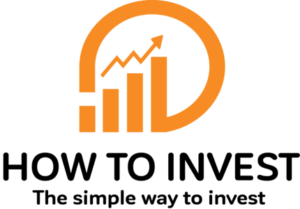Once you decide that you want to invest in stocks, there is still one big decision to make. Even if you know which industry you want to invest in, you still have two options: shares or exchange-traded funds (ETFs).
The shares vs ETFs debate is similar to any other question about investment decisions. Regardless of the choice you make, your top priority must always be to have as little risk as possible, and generate a profitable return on investment for yourself.
Getting started in the market? Sign up to Sharesies and receive free $5 in your account by clicking HERE.
What are ETFs?

While you may know that shares are individual fractions of ownership of a company that you can purchase, many people do not know about ETFs.
Exchange-traded funds are a combination of shares that you can buy and sell – similar to how the stock market works. These ETFs can be purchased or sold via brokerage firms who tend to guide you regarding which ETFs to purchase.
A majority of ETFs in the market double as index funds – which is a set of stocks of a particular industry in the economy. These are typically large sectors such as real estate or energy.
Here are some factors to consider
As you try to choose between an ETF or individual shares, here are a few important factors to consider before making your decision:
1. Individual Control

If your top priority is having control over your investment, then it is safe to say that stocks offer more individual control than ETFs. Purchasing stocks means that you can research the specific businesses that you want to invest in beforehand and choose each one critically.
For ETFs, it is difficult to promise individual control since these are bought through brokerage firms that are simultaneously tracking a large number of companies. This means that you would have less direct control over your investment, and even the profits that you make over time.
2. Flexibility

Similar to control, purchasing individual stocks lets you have more flexibility and variability on your portfolio. You can choose which stocks you want on your investment portfolio – making it as diverse as you want with a combination of growth stocks and value stocks.
3. Investment Predictability

Once you make an investment, you would want to know the estimated amount of return that you would receive. With individual stocks, it is easy to make accurate predictions using previous market data and trends. With ETFs, predictability is comparatively harder but not impossible. It only takes more effort because you would have to compare and combine the performance of your portfolio of stocks throughout various industries.
Summary
Whenever you have to make a choice between purchasing individual shares or ETFs, it is important to consider your risk and exposure first. Depending upon what your own priorities are, you would be able to derive a conclusion for yourself. In our opinion ETFs tend to be a better option when there is little dispersion of the returns from the average, and stocks tend to be better when there is significant dispersion of returns.
Unsure which platform to use to buy Shares or ETFs? See our full review so you can make the right decision by clicking HERE.
